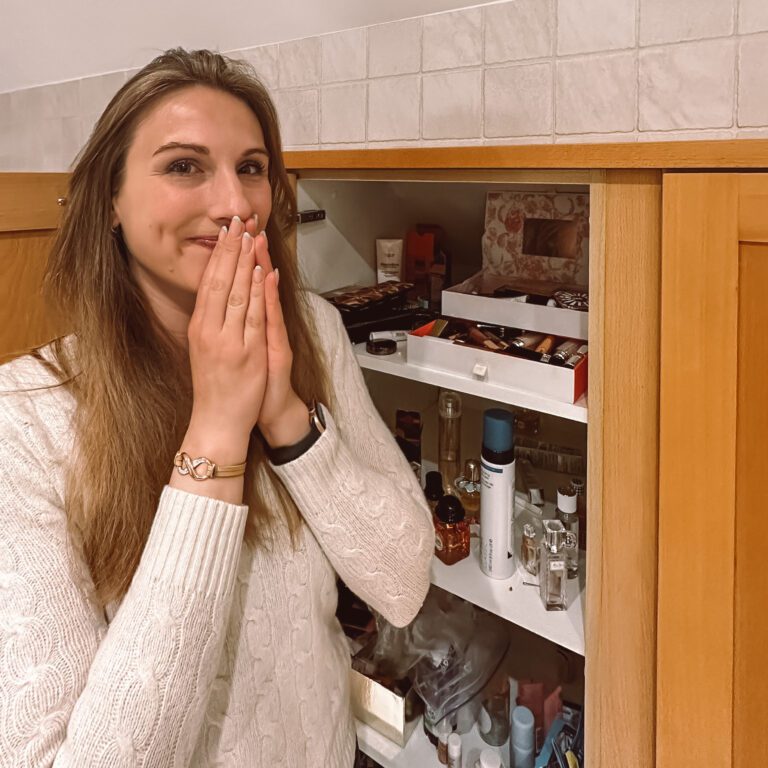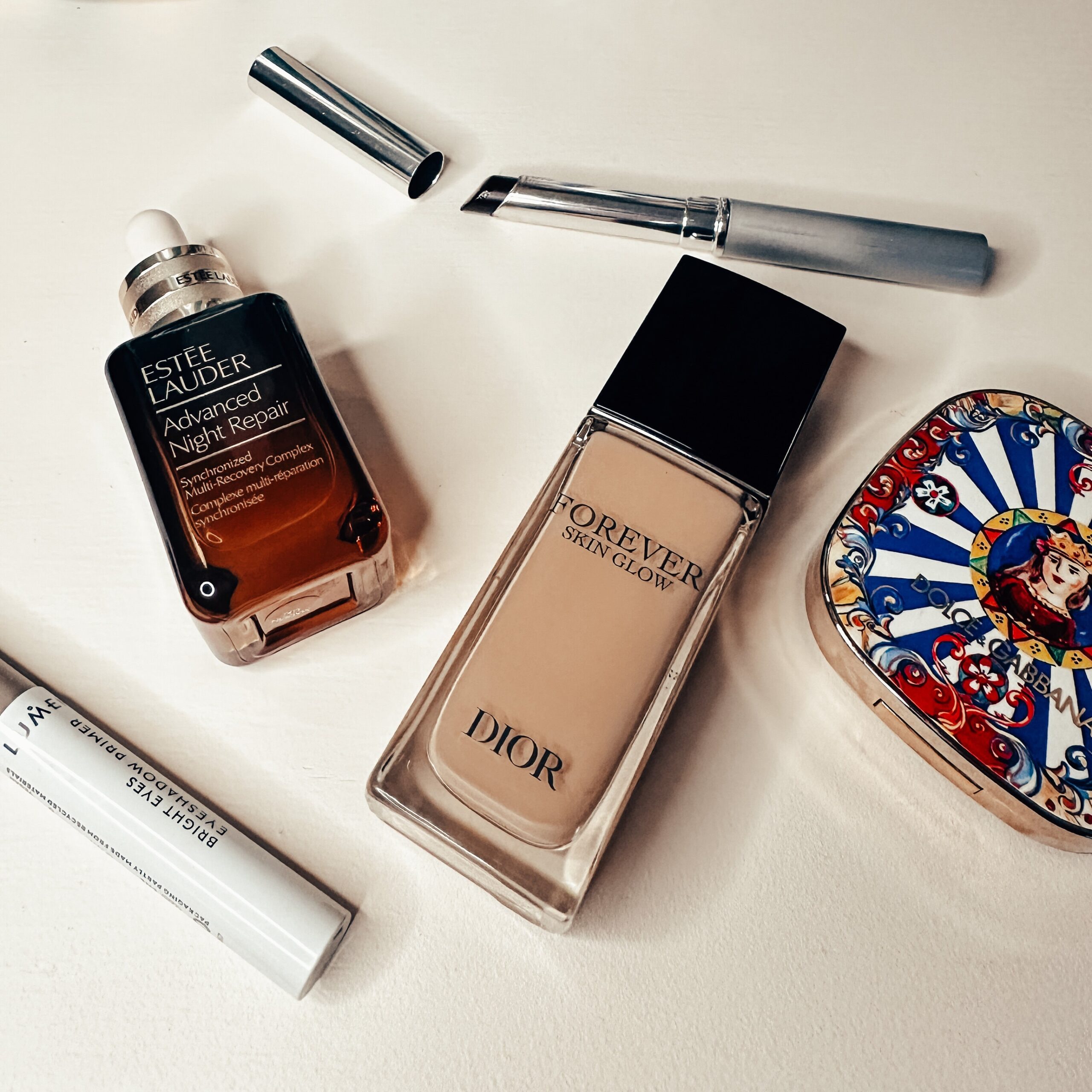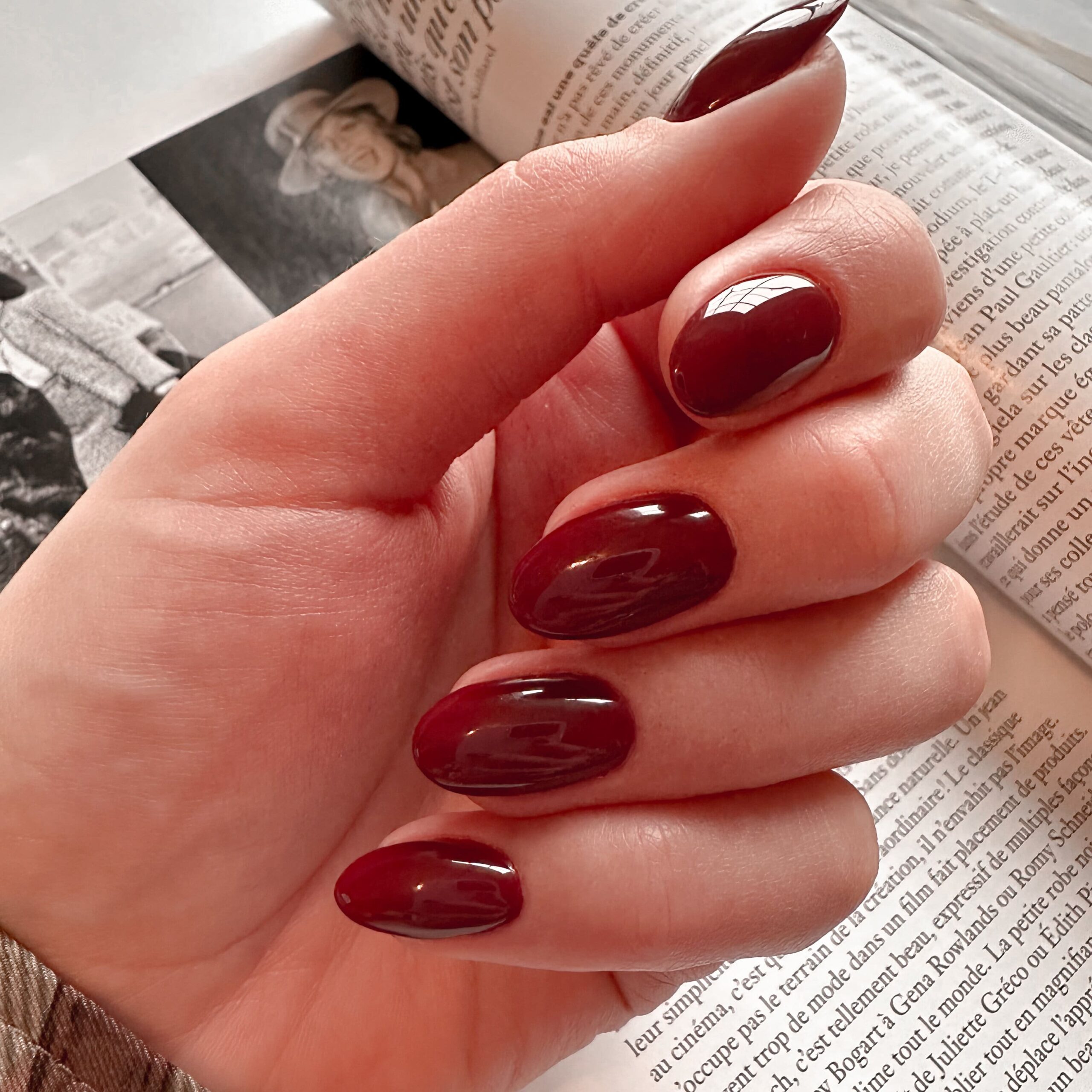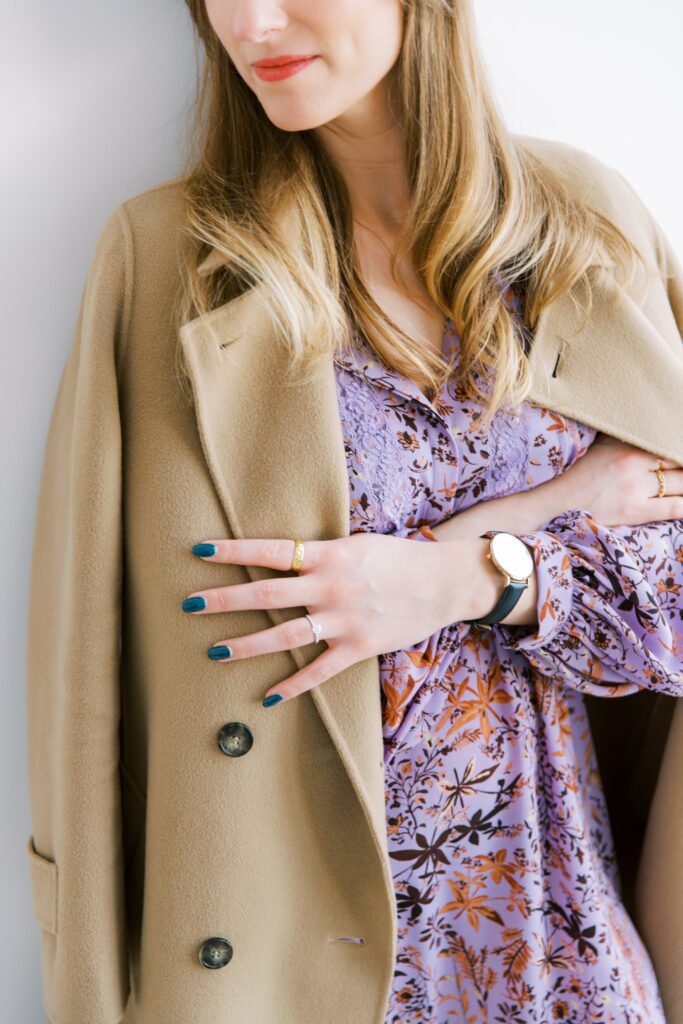Around this time of year most people will be doing some spring cleaning around the house. Yet have your thought of spring cleaning your make-up cupboard? I confess! Except for regularly washing my make-up brushes and exchanging my mascara, I for one have not. Until’ recently when I learned that expired make-up products can cause blemishes and irritations to the skin. So I rolled up my sleeves, did some research and cleaned up my overflowing make-up cupboard.
Being mindful of what you put on your skin
Now why would you want to regularly clean out your make-out? Well, when you use make-products for too long they can transfer poorly to your skin as well as cause breakouts, skin irritations and even infections. All make-up products have an expiration date which is often reached before you can finish the product. I know, I know make-up products, especially luxury make-up are not cheap and you want to get full use of them. Unfortunately, doing so can harm your skin, which is the last thing you want.
How long do make-up products last?
So how can you know when a beauty product is about to expire? Well, some products include an expiration date. It is, however, more common within the beauty industry to feature the PAO or period after opening. This is indicated by an open-jar symbol and was first adopted by the EU commission in 2003. It is an indication of how many months a product may be used after opening it. If you decide to use it for longer the product can suffer from physical, and/or chemical degradation, that would lead to micro-organism contamination, decrease in efficacy, or can harm your skin.

Quick Rules for 5 common beauty products
1. Powders have the longest life time of all beauty products they can go up to 2 years. However, some of the more popular foundations and concealers come in liquid form. Unopened these can go a long time. Yet after opening it is best to exchange them after 6 to 12 months. Ideally you don’t keep them in moist and warm environments like your bathroom. As Moisture encourages the growth of bacteria. The latter applies to all make-up products by the way.
TIP: Buy a foundation and concealer set for autumn/winter and refresh it for spring/summer. This will allow you to choose a slightly darker tone for spring/summer when you are bronzed and a lighter one over autumn/winter.
TIP: Refreshing your mascara at least twice a year will allow you to go for a waterproof version in the spring/summer months and a normal version in autumn/winter months.
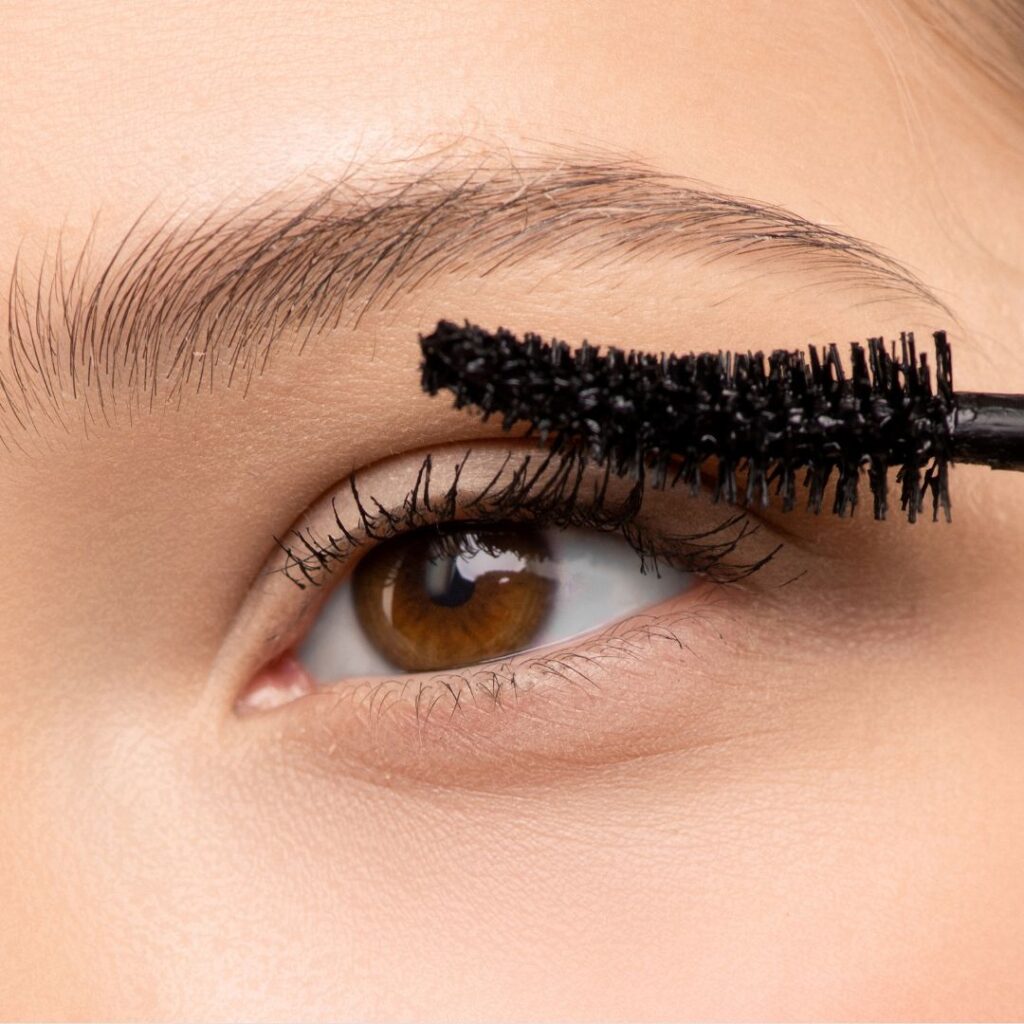
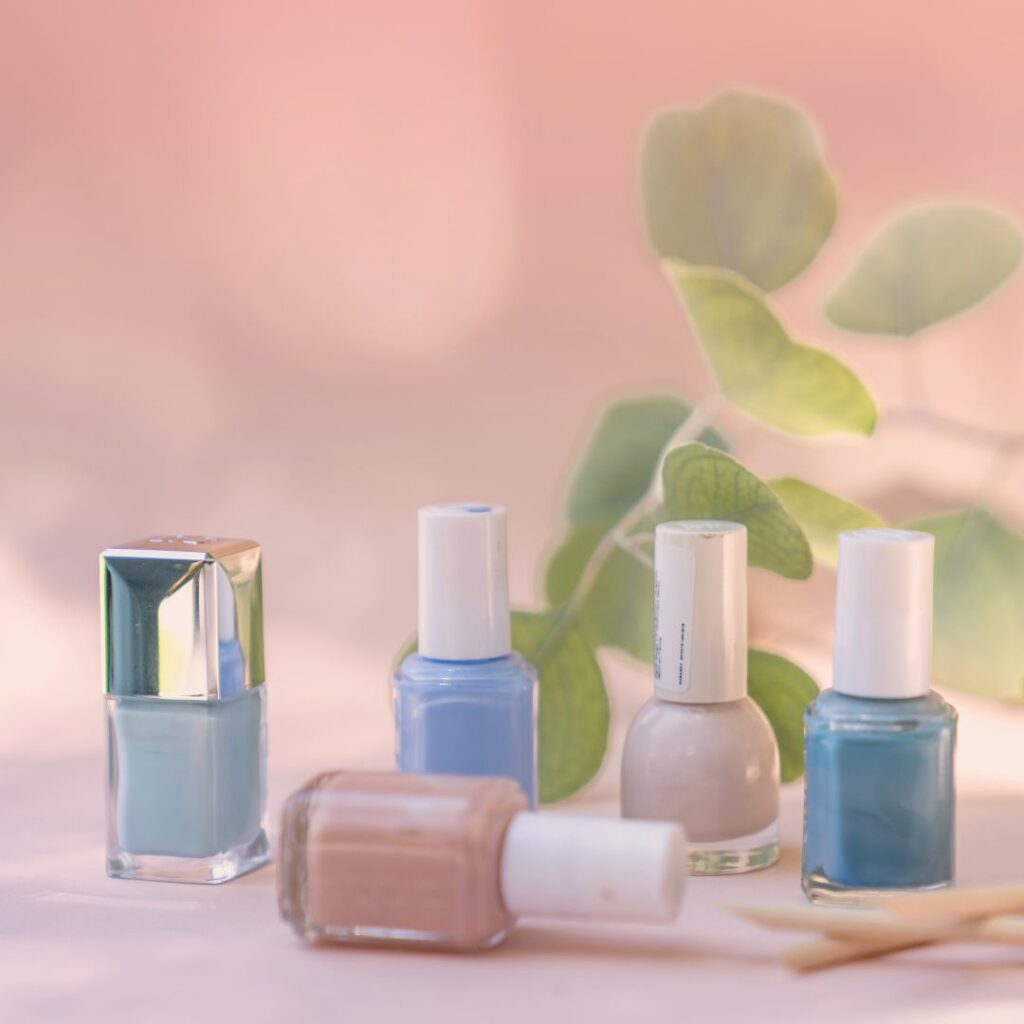
3. Eye shadow, we all want our eye shadow to make our eyes pop, and not irritate them. Like powders they have a rather lengthy life time. However, since they are in contact with the more sensitive eye area, there is an increased risk of transferring bacteria. Also, be extra careful with cream-based eye shadows.
4. Lipstick & glosses, in theory lipsticks and glosses can last rather long as they don’t contain any water. Yet they are in contact with the mouth area. Therefore it is a good rule to renew lip products after 1 year or after you have been ill.
5. nail polish rarely go “bad” because of microbial contamination, due to the harsh living conditions created by the solvents that are used. After a while though the lacquer will dry out and become thick and clumpy. The trick is to shake it, and if the formula remains separated, it’s done, otherwise you can keep using it.
TIP: Don’t forget your application tools. Brushes and sponges you use to apply your make-up can be a great source of bacteria. Therefore it is important to wash them every two weeks. You can easily rinse them with some soft shampoo.
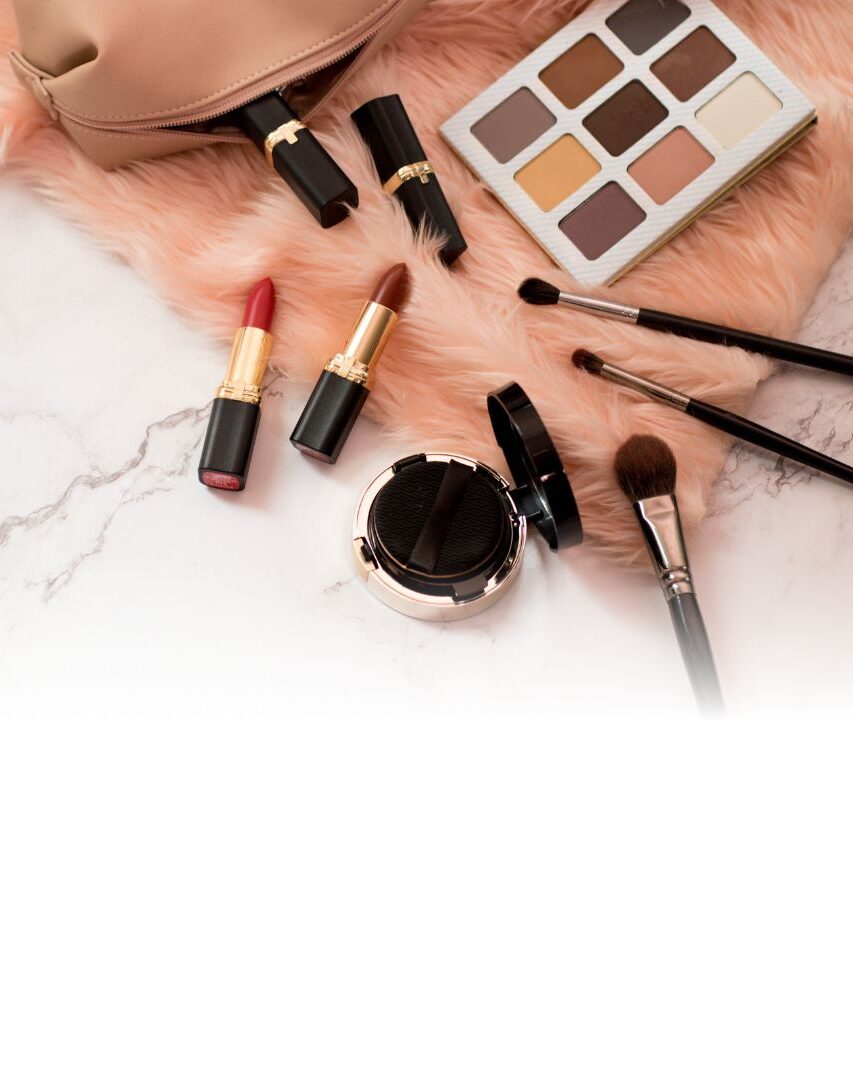
How to sustain a healthy and sustainable beauty bag?
I will confess I was a bit of a make-up hoarder before I figured all of this out. However, whilst I was cleaning out my cupboard I realised that there were only a handful of products I reach for on a regular basis.
It seemed that over time I found my signature daily make-up style and my go-to combination for more dressy occasions. Consequently, I strongly believe you don’t need an extensive make-up kit.
Your baseline has to be strong and tailored to your natural features. Think of your foundation, concealer and face powders like bronzer and blush to create a strong base. When it comes to Mascara always opt for black, and go for the brush that works best for you. Finally, you need an everyday eyeshadow and lipstick or gloss as well as a more festive variation of both products. Depending on your own style you can add eye and/or lip liners, brow gel and liner.
You only have one skin, so it’s best to take good care of it. Start by finding a skincare routine that works for you (you can read more about mine here). Then, it is important to use your make-up products correctly. Thus, refreshing them on a regular basis to avoid getting blemishes and skin irritations from overdue make-up. Finally, go sustainable by identifying your signature daily and festive look, so you can size down your make-up kit. More is not necessarily better, especially not when it comes to make-up, focus on enhancing your natural beauty to make more style conscious decisions.
“
More is not necessarily better, especially not when it comes to make-up, focus on enhancing your natural beauty to make more style conscious decisions.
Ode 2 Style Tweet

